Healthy minds: UC staff who support mental wellness
Share This Article
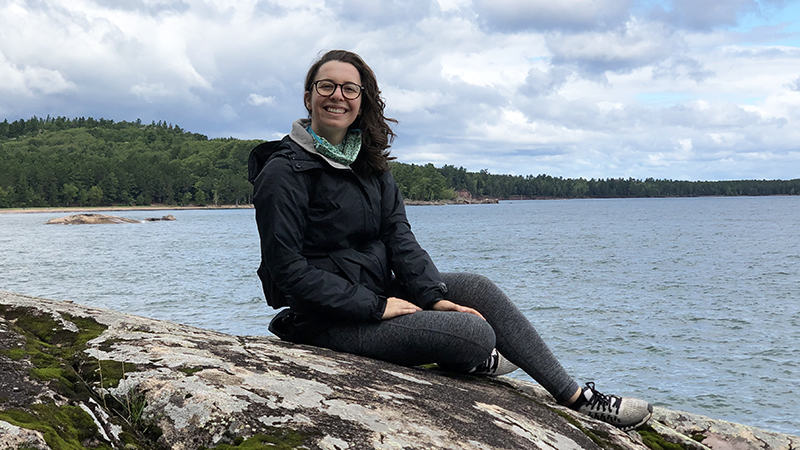
May is National Mental Health Awareness Month! To celebrate, we asked staff throughout UC to share how they support mental health — at work and outside of it. Here are some of the stories they shared.
Editor’s note: If you need support, please consider reaching out to your local Faculty and Staff Assistance Program, or learn about behavioral health benefits through UC health plans.
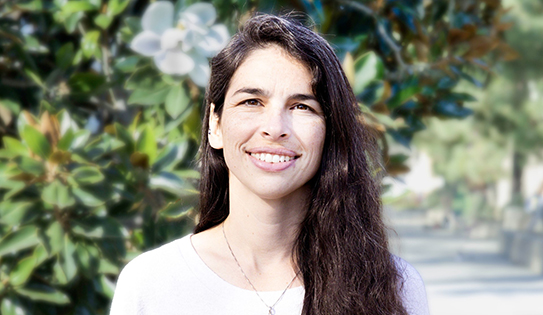
Tessa Opperman
Outdoor Leadership Programs Manager
Outback Adventures
UC San Diego
I run the Outback Adventures trips program, including a Well-Being Camping Retreat, which includes mental health skill-building. The outdoor community often considers accessibility — who can physically recreate outside, who feels like they belong and who can afford travel. But mental health can also be a barrier; sleeping outdoors and trip planning can feel intimidating. Many students have never been camping. We help them experience nature in a truly accessible way — everything is included, with guides who explain how to stay hydrated, warm and safe. I also train staff and student leaders to recognize and address mental health concerns in the field. This work is very meaningful because I believe that leadership is a learned skill, that EDI is an integral part of effective leadership, and that mental health is an important consideration for EDI. And I know that our guides will take these skills with them to positively impact many more people.
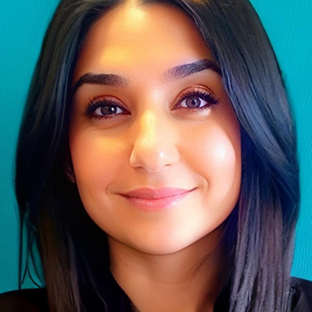
Ana Dolatabadi
Clinical Director
Faculty and Staff Assistance Program
UCSF and UC Office of the President
About 25 years ago I took my first psychology class, where I discovered endless possibilities and an understanding of psychology’s tremendous impact in creating positive change. When my father passed, I gained a deep appreciation for the tireless efforts of health care professionals and people behind the scenes — as well as the challenges they face. This inspired me to dedicate my life to promoting well-being for health care employees. My approach as FSAP clinical director is informed by my Persian-Iranian heritage, through which I have a deep appreciation for diverse perspectives and experiences, including underrepresented communities’ challenges. My team’s dedication and commitment are remarkable and inspiring, and our clients’ journeys of self-reflection and growth are a testament to the transformative power of mental health care and the resilience of the human mind. It is an honor to contribute to their growth and to advocate for mental health.
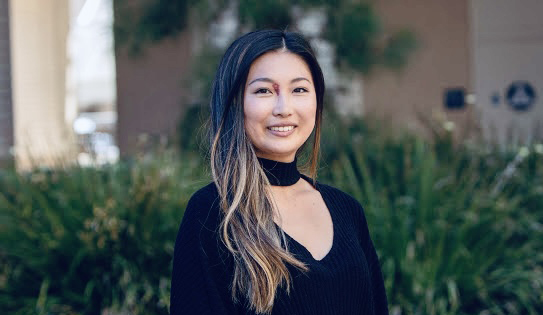
Jasmyn J. Tang
Research Coordinator
Department of Medicine
David Geffen School of Medicine
UCLA
Since 2023, I have acted as a crisis counselor for the global nonprofit, Crisis Text Line. Through this work, I support people experiencing mental health crises, including anxiety, depression, bullying and suicidal ideation. I empathetically navigate crisis interventions through active listening, collaborative problem-solving and management, and safety planning. Volunteering as a crisis counselor has helped me to appreciate how mental health support and resources can positively influence our quality of life and overall well-being. As someone with a passion for preventive care, I treasure how my daily conversations can aid the present situation and help discover solutions to prevent future crises.
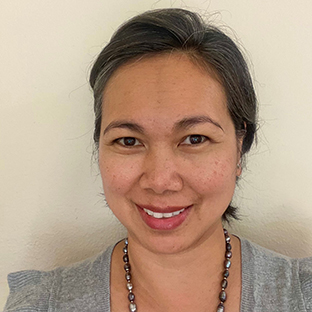
Romina Romero
Regulatory Affairs Specialist
Institute for Memory and Neurological Disorders
UC Irvine
I volunteer for a task force that provides assistance to victims and survivors of human trafficking. One of the projects I am involved with is a survivor-led monthly support group that provides survivors with the space to learn job skills and discuss their progress and challenges in adjusting to life after their trauma, in addition to practicing mindfulness, breathing techniques, meditation and art therapy. I coordinate and attend a social club where volunteers cook and share a meal with survivors to introduce them to different cuisines and cultures, and to give them the opportunity to build community. My work with survivors of human trafficking has been tremendously humbling. Their resilience after trauma, hope for the future and gratitude for the little things we often take for granted are inspiring. It’s been a privilege to gain their trust and friendship.
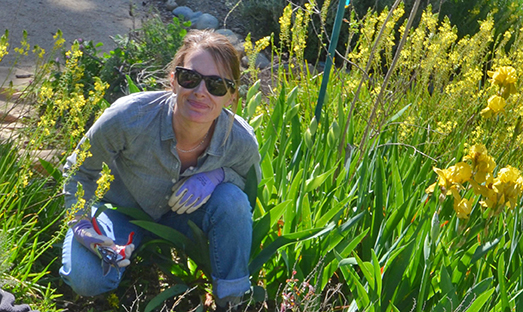
Stacey Parker
Director of Public Horticulture and Engagement
Arboretum and Public Garden
UC Davis
I lead the Nature Rx program, which connects students, staff, faculty and visitors to the therapeutic benefits of nature — fulfilling a prescription (Rx) for better physical, mental and social health. Engaging with the natural world has been scientifically proven to reduce anxiety, alleviate depression, strengthen social ties, improve sleep quality and enhance overall psychological well-being. We provide individuals with the chance to take a break from the demands of daily life, to reconnect with the natural world and one another, and to cultivate a sense of inner peace and well-being. This work holds deep personal meaning for me as it aligns with my passions for the environment and mental health advocacy. Witnessing the transformative power of nature on individuals’ well-being and seeing the joy and peace it brings to them is immensely fulfilling.
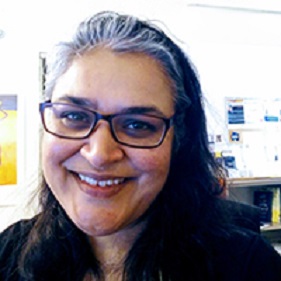
Neesha Patel
Psychologist – Behavioral Health Consultant
Occupational Health Clinic
Staff and Faculty Health and Well-Being Program
UC Davis
I support UC Davis employees in exploring ways to foster a sense of well-being and psychological health in their busy lives. I offer psychoeducational programs, like mindfulness and kindness meditations, as well as workshops on stress resilience and related topics. I also work individually with Work Strong participants to help them develop injury prevention skills and optimize their psychological health and resilience. This work is deeply meaningful to me because I believe that each and every person in our community matters – their mental health and wellbeing matters. I feel fortunate to be working for an institution that supports people in caring for themselves and each other in this way. This then allows our employees to show up and offer their best in contributing to that which is meaningful and beneficial in our community and beyond.
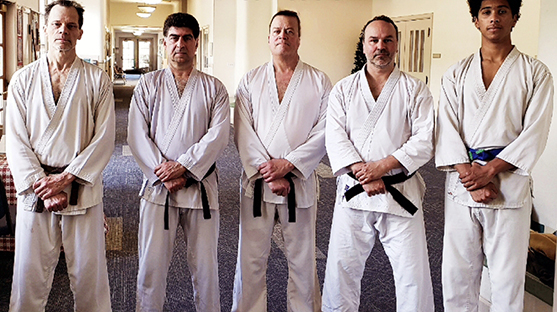
Jeff Violet
Commissioning Project Manager
Projects and Infrastructure Modernization Division
Lawrence Berkeley National Laboratory
I participate in Orinda Shorin-Ryu Karate. This is an activity where a person can enjoy immersion into a culture where judgment makes no sense; one simply searches to discover one’s own weaknesses and work on them. There is also the simple benefit of physical exertion. The mental health benefits can be beyond description. This work is as meaningful to me as any participant, and I have the pleasure of bringing these benefits to anyone willing to participate.
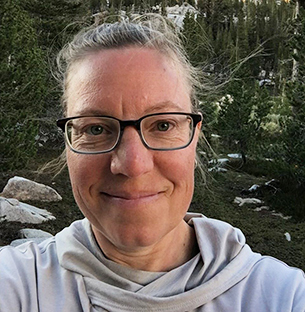
Shannon Anderson
Field Safety Officer
Environmental Health and Safety
UC Santa Cruz
I have been working on mental health-related issues for over 20 years, and mental wellness is a significant priority for me in all interactions. When instructors and research leaders shared that they were experiencing many student mental health issues in the field, in remote settings, that they weren’t trained to handle, I created a workshop to support them. Modeled after wilderness first-aid curriculum, the four-hour course teaches faculty, teaching assistants and research staff how to attend to, stabilize and make evacuation decisions for students. We practice holding space, remaining calm and actively listening; deescalation and grounding techniques to achieve a stable status from which to discuss solutions; and guidelines for student evacuation. I am so grateful to be able to share my knowledge and experiences with others that will ultimately benefit many, many field participants.
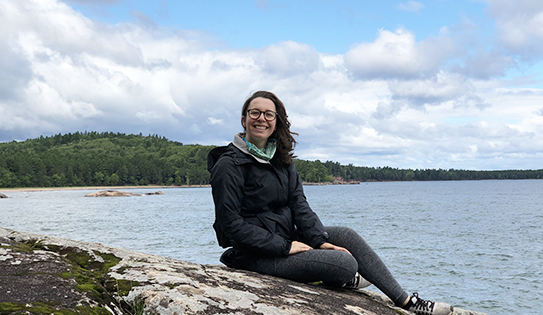
Emily Giovanelli
Mental Health Educator
Student Health Outreach and Promotion Program
UC Santa Cruz
All students deserve to thrive in college, but not everyone has the same tools in their toolbox. As the first mental health educator funded by a Mental Health Equity Grant through the UC Office of the President, I use public health concepts to promote positive student mental health from an equity standpoint. I work closely with a team of peer educators to help students create a better college/life balance by practicing self-compassion, navigating stressful situations and achieving academic success — all through a strengths-based approach. It took me a long time to understand that many factors in our lives can affect our mental health. I love supporting students at UCSC and helping them discover this. Navigating college can be challenging and overwhelming. When I can connect with a student, I feel pride in the work I do.
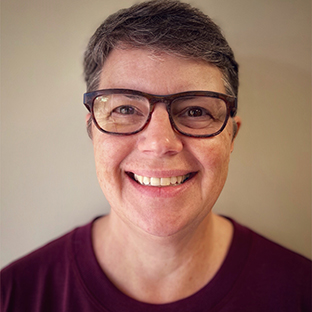
Ann Batenburg
Residence Life Coordinator
Graduate and Family Housing
UC Irvine
I’m currently doing three things to support the mental health of my community: I’m a UCI wellness ambassador — I promote wellness within my department by sharing strategies for fostering a flourishing life. I just became a board-eligible health coach, and I am studying to be a meditation teacher. I teach a meditation class for UCI OLLI. There are so many strategies that can lower stress and improve health and relationships — and improvement often takes just one deep breath. I was gratified to see that the California Assembly has a Select Committee on Happiness and Public Policy Outcomes. We can save lives and a lot of money by focusing on encouraging well-being and emotional intelligence. There is a mountain of science behind this effort, and I’m happy to be a part of it.
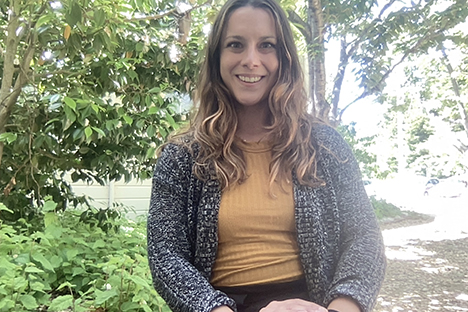
Joanna Zaccaria
Case Coordinator
Behavioral Intervention Team
UC Santa Cruz
In my work at UC Santa Cruz I support the mental health of staff, faculty, and students by ensuring that they have the resources they need to be successful when they’re referred to the team. Outside the university, I am a music therapist with a private practice. I work with kids with autism spectrum disorder and various other disabilities, helping them learn to use music to improve their quality of life. Both jobs are meaningful to me because I believe that early intervention is an important step in managing mental health. I love that I can make a difference for such a variety of populations.
